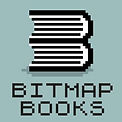Did you know that your authors don't make a lot of money?
Sure, the only reason J.K. Rowling isn't a billionaire is because of her charitable nature, but we can't all write The Book Of The Generation. No, your average author, even some household names are earning little more than minimum wage, and many keep up a second, full-time job to be able to fund their passion. My favourite author N.K. Jemisin recently set up a Patreon, asking fans for support so she could her full-time job and be able to write more. To give an idea of how popular she is, she hit her first "I Can Quit My Job Now" target of $2,000 per month within less than a day, and in the few weeks since, that has more than doubled. Popularity no longer equates to financial stability in the world of traditional publishing.
So you can imagine the backlash, then, when word spread about Australia's proposed changes to the copyright law, reducing copyright to just 25 years after publication. The report also called for free imports of books and all kinds of things that drove authors and booksellers alike wild.
It's worth pointing out that these aren't actual laws that are being proposed, it's just a report that suggested changes to the laws that hasn't really been seriously discussed by parliament, but it's understandably drove authors and Australian booksellers to using their online and real-world platforms to make their feelings evidently clear on the matter.
The Twitter hashtag #CopyrightMatters came alive last month with Aussies and book lovers across the world sharing petitions and their personal anecdotes on the importance of copyright. Australian fantasy author Trudi Canavan tweeted:
Copyright issues often seem to be the bane of people's lives. Copyright meant that I couldn't take a picture of the wedding dress I was thinking of buying to show my mum, it means that people can't just go round making covers of songs they love without a bureaucratic rigmarole, and it means that you have to pay?? For things?? I know, how rude.
But paying for things means that the creators and authors we love can keep on writing, keep on creating. We have the vision in our heads of starving artists who live off of the art they make, but the reality is that without the money they get from sales, they won't be able to eat. And without a secure income they can't continue to create the worlds we love.
The Australian government has said that any claims of scrapping or reducing copyright laws is just hearsay and there's no official plan to change copyright laws, but it makes one think what the world would look like without copyright laws to protect the intellectual property of our beloved authors and musicians.
For one thing, there'd be no Big Comfy Bookshop. The shelves would be sparse, as authors would be unable to afford a career of writing, and the books that are on the shelves wouldn't be bought. Why pay for a book when you can legally get it for free? That would be a crying shame for me, because I wouldn't have my favourite client, but more importantly it'd be a pattern seen across the world.
The age of the digital download is already hindering bookshops and authors alike, let alone publishers, editors and everyone else involved in the selling of the book. Big online sales platforms that shall not be named offer cheaper, more "convenient" alternatives to the traditional process of buying books. Not only are brick and mortar shops suffering from the lack of foot traffic, but authors are getting less in royalties through online sales. To make matters worse, said big online selling platforms are evading tax, and the less income an author or bookshop makes, the less tax is paid. So the economy suffers.
Now imagine that on the scale of little or no copyright. The Australian report argues that the income made in the first 25 years copyright is comparable to the income made in the current situation, which is life plus 70 years. That report, I reckon, is only taking a very narrow view. It's not considering everyone else in the process from the first draft to the final sale. It's not considering the number of people whose livelihoods depend on the security copyright provides, and it's not considering wider cultural and economical impact that will have.
Save the economy.
Buy books.

